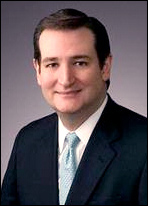In the past few days, developments have occurred that help define the Republican presidential field of candidates. Mississippi Gov. Haley Barbour, after giving every indication he was beginning to build a bona-fide presidential campaign apparatus, now says he won’t run. Rep. Ron Paul (R-TX-14) is forming a presidential exploratory committee, meaning his son, Sen. Rand Paul (R-KY), will not become a candidate. Former New York City Mayor Rudy Giuliani, now traveling to New Hampshire on a regular basis, says he will run if he doesn’t believe that another Republican candidate could actually defeat Pres. Barack Obama in a general election.
We still must hear definitively from former Arkansas Gov. Mike Huckabee, ex-VP nominee Sarah Palin, and Indiana Gov. Mitch Daniels, all of whom may not enter the race, and Massachusetts ex-Gov. Mitt Romney, Rep. Michele Bachmann (R-MN-6), ex-House Speaker Newt Gingrich, and former Minnesota Gov. Tim Pawlenty, all of whom either will, or probably will, run.
Looking at the delegate counts and apportionment systems that each state employs uncovers a road map to victory for one of the eventual candidates. Eleven states are winner-take-all (of Republican delegates) and another nine are winner-take-all by congressional district. These states proved key to Sen. John McCain’s come-from-behind victory in 2008. Remember, the McCain candidacy had been given up for dead until the actual voting began. His close wins in South Carolina, Florida, Missouri, and Arizona (though the margin between McCain and the other candidates wasn’t particularly close in his home state, he still managed to garner only 47 percent of the vote within his own Arizona party base) gave him such a commanding lead in the delegate count that it soon became obvious no one could catch him.
Interestingly, despite his under-the-radar approach to the 2012 campaign, the delegate-rich states stack up pretty well in former Mayor Giuliani’s favor, considering his home base of New York (101 delegates) and New Jersey (53), are in the winner-take-all category. Connecticut (28), the District of Columbia (19), Delaware (17), and Vermont (17) are all other places the ex-NYC chief executive could win. Maryland (37 delegates), another Giuliani potential, is in the winner-take-all by congressional district category. The big states of California (172) and Florida (93) are also there, as are Ohio (72) and Wisconsin (42).
All totaled, the winner-take-all and the winner-take-all by congressional district states contain 1,096 delegates of the grand total of 2,422 that form the Republican National Convention. This means 45.2 percent of all delegates will be chosen in either winner-take-all or winner-take-all by CD states. The remainder are in caucus, proportional systems, or hybrids like Louisiana (48 delegates) where both a primary and caucus are used.
The winner-take-all by congressional district awards a candidate a certain number of delegates for winning the statewide vote (usually their base 10 delegates that all states receive, and whatever extra and bonus votes they earn for electing Republican candidates to office) and another three delegates for every congressional district won. This system is interesting because some congressional districts in places like Los Angeles, where Republicans routinely receive well less than 30 percent of the vote are of equal stature to the strongest of GOP districts in terms of delegate allocation for the Republican presidential primary. While it is unlikely that any one candidate would win all of the delegates in a winner-take-all by CD state, it is possible for an individual to snare the vast majority, which matters greatly in the national vote count.
Whether Rudy Giuliani comes back from political oblivion to stake his comeback on a winner-take-all state strategy is unclear right now. What is evident, however, is that the person carrying the preponderance of these winner-take-all states and districts will almost assuredly win the 2012 Republican nomination and become Obama’s future general election opponent.
Winner-Take-All States
• Arizona – 54 delegates
• Connecticut – 28
• Delaware – 17
• District of Columbia – 19
• Missouri – 56
• Montana – 26
• New Jersey – 53
• New York – 101
• Utah – 36
• Vermont – 17
• Virginia – 49
Winner Take All by Congressional District
• California – 172 delegates
• Florida – 93
• Georgia – 72
• Maryland – 37
• Michigan – 62
• Ohio – 72
• Oklahoma – 43
• South Carolina – 47
• Wisconsin – 42
___________________________________________________
For further detailed insights, to sign up for my daily email updates, or to sign up to track specific issues or industries, please contact me at PR***@pe*******************.com.

